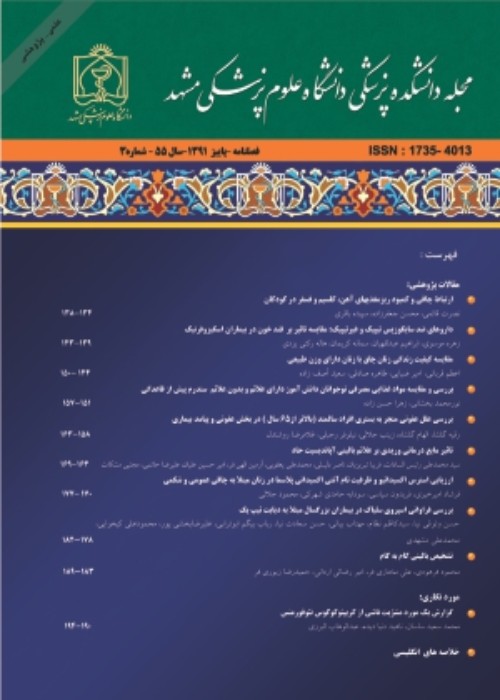Comparison of the effectiveness of a school-based educational program with an educational program based on academic well-being On students' academic hope
The purpose of this research was to compare the effectiveness of the educational program based on school satisfaction with academic wellbeing on students' academic hope. In this research, the effectiveness of these two methods were compared.
In terms of methodology, the current research is part of quasiexperimental designs of pre-test, post-test and follow-up with a control group. The statistical population of the research was all the female students of the third year of the second period of secondary school in the city of Naqdeh, who were studying in the academic year of 1998-99. From this population, students with low academic prospects were screened using the purposeful sampling method. Then 60 students of that school who had low academic expectations were selected and randomly divided into three experimental groups of 20 people and a control group of 20 people. The experimental group was taught 10 sessions of 90 minutes program based on academic well-being. The members of each group completed the academic well-being questionnaire of Tominin, Sweeney et al. (2012) and the school satisfaction questionnaire of Anderson and Brooke (2000) and the educational hope questionnaire of Kharmai (2013) in all three stages of pre-test, post-test and follow-up. they did Data were analyzed with SPSS22 software and mixed variance analysis method.
The findings showed that the average scores of the academic hope variable in education based on school satisfaction in the experimental group compared to the control group, in the post-test and follow-up stages, increased significantly.
Therefore, according to the fact that the post-test average of the subjects in the academic well-being group is lower than that of the subjects in the school satisfaction group, it can be concluded that the placement of the subjects in the academic well-being group has caused a decrease in the scores in the post-test of academic well-being. Byram Nejads, placing the subjects in the school satisfaction group has increased the scores in the post-test and it can be concluded that school satisfaction includes all the variables and criteria of academic progress and satisfaction with learning, and education based on school satisfaction compared to education based on It has more success on academic well-being because it considers a set of factors and provides the reasons for students' satisfaction with the school.
- حق عضویت دریافتی صرف حمایت از نشریات عضو و نگهداری، تکمیل و توسعه مگیران میشود.
- پرداخت حق اشتراک و دانلود مقالات اجازه بازنشر آن در سایر رسانههای چاپی و دیجیتال را به کاربر نمیدهد.



